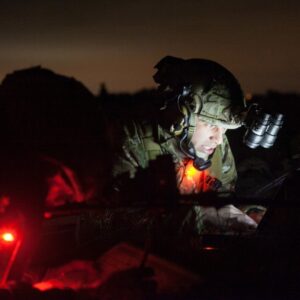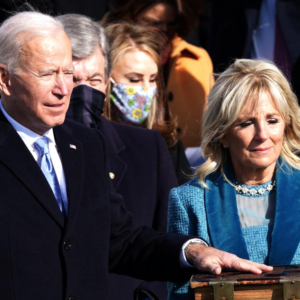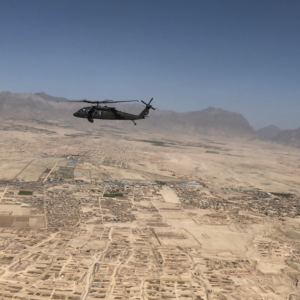On the 17th of July, 2014, a commercial airliner chartered by Malaysian Airlines was shot down suddenly and inadvertently by an unknown operator from a Russian Buk mobile missile launch system. The missile was designed to intercept armored aircraft. The weapon exploded about 20 meters from its mistaken target, the commercial plane, and bombarded it in a hail of shrapnel, tearing it to shreds. The flight manifesto included 298 individuals, of which 15 were crew and 283 were passengers. Of those passengers, 193 carried Dutch passports with them from Amsterdam to Kuala Lumpur.
The downing of a civilian airliner had an immediately sobering effect upon the Netherlands. In the weeks following, Dutch press pieces focused on national outrage, the delays in processing of the dead, allegations of plunder by the pro-Russian separatists, but also of the traumatic effect that this tragedy had on the Dutch people. A National Day of Mourning was declared on the 23rd of July by Prime Minister Mark Rutte; the first since 1962 when there was a declaration to mark the death of Queen Wilhelmina.
On July 23, the first victims’ remains were flown to the Netherlands by a Dutch military transport aircraft. It had taken over a week to fly them to a forensic laboratory in the city of Eindhoven, in the Netherlands. Tensions in Europe had been ongoing. Only a day earlier, the European Union (EU) announced sanctions against Russia for its support of the pro-Russian insurgency. The Russian Federation continues to act as a mediator, even though it is itself variously accused of severely damaging the territorial sovereignty of Ukraine. Russians caught fighting in Ukraine by the Ukrainian army have been declared “volunteers,” and pro-Russian separatists with close political ties to Moscow, (including Alexander Borodei and Igor Gerkin, otherwise known as Strelkov) are unacknowledged.
Communications intercepted by Ukraine between a Russian military intelligence officer and a field commander indicated an acknowledgment of a downed Ukrainian air force unit. The field commander radioed in to report that it could not have been a military transport, and that there were civilian bodies falling from the sky, “everywhere” The military intelligence officer then declared they were “spies.”
At first, Russian President Vladimir Putin declared that this tragedy could have been avoided if there were no military operations in the area. A few days later, rebel commanders repeatedly turned away investigators with threatening gestures. Putin implicitly laid the blame on Ukraine for creating an environment in which these kinds of incidents occur, deflecting allegations of Russian involvement on the ground.
 Europe’s sanctions were accelerated into action by the MH17 tragedy, representing a major escalation of economic punishment. The first round of sanctions, imposed by the EU after the annexation of Crimea in March, implemented “travel plans and asset freezes” against specific individuals. The second round, published on the 28th of April, expanded this list. The third round, effective on the 30th of July, restricted trade between EU member states and certain sectors of the Russian economy, including the all-important energy market, signaling that the EU was ready to accept direct economic hits to ensure peace. In response, Russia put in place a one-year ban on agricultural goods originating from those member states with sanctions against the Federation.
Europe’s sanctions were accelerated into action by the MH17 tragedy, representing a major escalation of economic punishment. The first round of sanctions, imposed by the EU after the annexation of Crimea in March, implemented “travel plans and asset freezes” against specific individuals. The second round, published on the 28th of April, expanded this list. The third round, effective on the 30th of July, restricted trade between EU member states and certain sectors of the Russian economy, including the all-important energy market, signaling that the EU was ready to accept direct economic hits to ensure peace. In response, Russia put in place a one-year ban on agricultural goods originating from those member states with sanctions against the Federation.
Considerations on the use of force, including rumors of a ready Dutch-German paratrooper unit, were heavily limited by European security considerations in The Hague. “There are times when I too say ‘Send in the marines,’” said Rutte in a televised meeting with cabinet members and lawmakers, noting that the geopolitical tensions in the area called for coalitions with all parties involved in the conflict. Instead, the Netherlands sent forty unarmed paramilitary police members to accompany international investigators from the Organization for Security and Co-operation in Europe. Rutte has addressed Putin in speeches and over teleconference with uncharacteristic rage. Two days after the crash, Rutte tasked Putin with doing “everything possible” to recover the bodies and secure the site.
The explicit message was clear, the Dutch government would hold the Russians accountable for the tragedy insofar as they were unwilling to communicate with the separatists in securing the crash site. Putin could not rein in pro-Russian separatists he claimed were acting on a “spontaneous desire” to break off from Ukraine, and therefore could not appear to control the rebels.
All in all, the first days and weeks after the crash were a crisis the Dutch have not seen before. The U.S. ambassador to the United Nations, Samantha Power, the accident to September 11th, in that the proportion of casualties was equal relative to the total population of the Netherlands. For weeks, the Amsterdam daily Het Parool published heart-rending biographies of Amsterdammers who died in the crash. Yet, the country was extraordinarily limited in its ability to act in the same way that the United States reacted to the attacks of September 11th.
To this day, the remains of some crash victims are still unrecovered. North Atlantic Treaty Organization’s (NATO) proposal of an Eastern European rapid deployment capability, including the continued expansion of sanctions, represents a deep freeze in European relations with Russia. These sanctions are the result, in major, but not specifically attributable manner, of the MH17 accident. As a Dutch citizen, I believe the unfolding of the events after July 17th were, at first, a promising development. The crash demonstrated that Russia had overplayed its hand, that its foreign policy agenda knew no bounds, and that it had provided evidence for broader sanctions.
President Putin’s 16 year rule over the Russian Federation, and the continued erosion of civil liberties in that country, including kleptocratic practices among his close associates, some of whom are directly affected by the United States’ sanctions, have this crash to bear on their conscience. It is clear that the European Union and its NATO allies are dealing with an effectively organized oligarchy that considers civilian casualties an acceptable form of collateral damage. For the Netherlands, this is a time when the reality of far-flung combat has suddenly become painfully close. What hurts more, though, is the inability to secure a lasting resolution to the complex machinery that dominates the eastern Ukraine.





